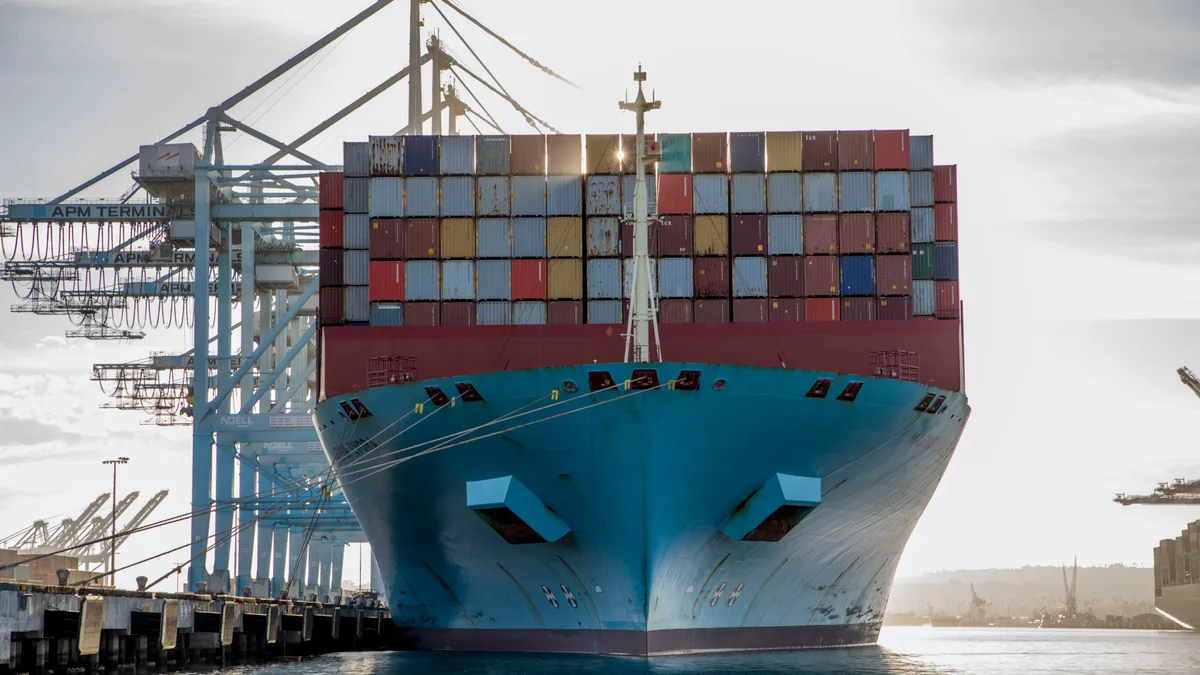UPDATE: Jan.12, 2022: Maersk is accelerating its net-zero emissions targets to 2040, a decade earlier from the initial goal of 2050. The update reflects “a very challenging, yet viable pathway to net-zero which is driven by advances in technology and solutions,” CEO of Fleet and Strategic Brands Henriette Hallberg Thygesen said in a statement.
The company also announced 2030 targets which include a 50% reduction in emissions per transported Maersk containers and a 70% reduction in absolute emissions from fully controlled terminals.
Dive Brief:
- A.P. Moller - Maersk announced its intent to reach carbon neutrality by 2050 — meaning the ocean carrier will attempt to remove as much carbon as it contributes to the atmosphere.
- To achieve this goal, carbon neutral vessels must be commercially viable by 2030 and new technology must be brought to bear, said the carrier in a statement.
- "The only possible way to achieve the so-much-needed decarbonisation in our industry is by fully transforming to new carbon neutral fuels and supply chains," says Søren Toft, Chief Operating Officer at Maersk.
Dive Insight:
With much of the world represented at the COP24 Climate Conference in Poland this week, the timing of this announcement is no mystery. Ships are a significant contributor to climate change, responsible for 3% of global greenhouse gas emission, according to the International Council on Clean Transportation.
Carbon neutralizing solutions for ocean shipping are more complex than those for rail and road transportation, according to Maersk's statement, because the infrastructure that makes possible electric trucks and rail cars, namely charging opportunities, are not available over thousand-mile trips on the open ocean. Extending battery life is just one technological advancement the company ties to this goal as necessary for success.
Ocean shipping lines are already consumed by the International Maritime Organization's sulfur emissions standards, which will reduce to 0.5% in 2020. Still a year away, the change has caused anxiety among both carriers attempting to adapt to the standard amid shrinking margins and shippers whom carriers are looking to foist much of the cost.
Experts have warned if carriers choose the option of installing scrubbers on ships to remove sulfur, instead of converting to new fuels, this investment could lock carriers into old fuels for years or decades to justify the hardware spend.
To reach this new emissions goal, Maersk acknowledged vessels will need to further change, and called on the industry to work on a new ship.
"Given the 20-25-year life time of a vessel, it is now time to join forces and start developing the new type of vessels that will be crossing the seas in 2050," the release said.















